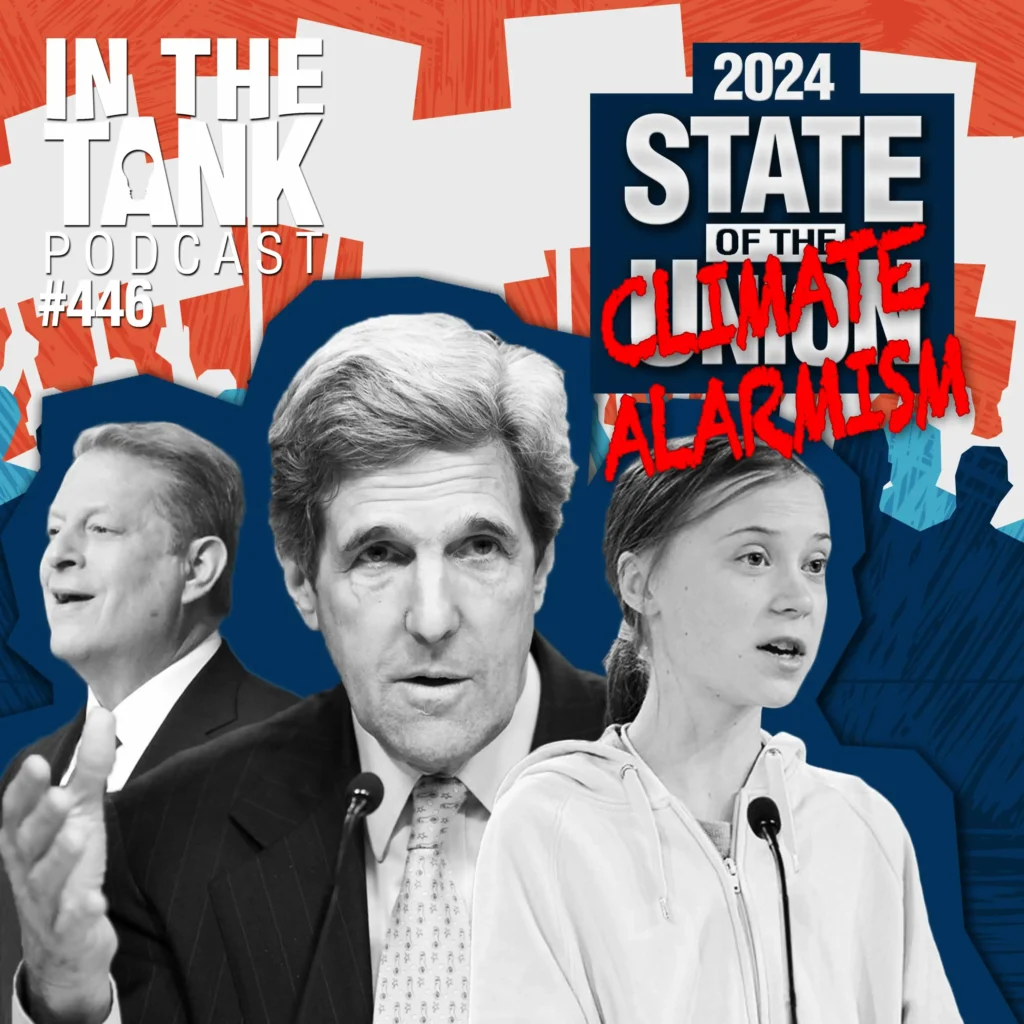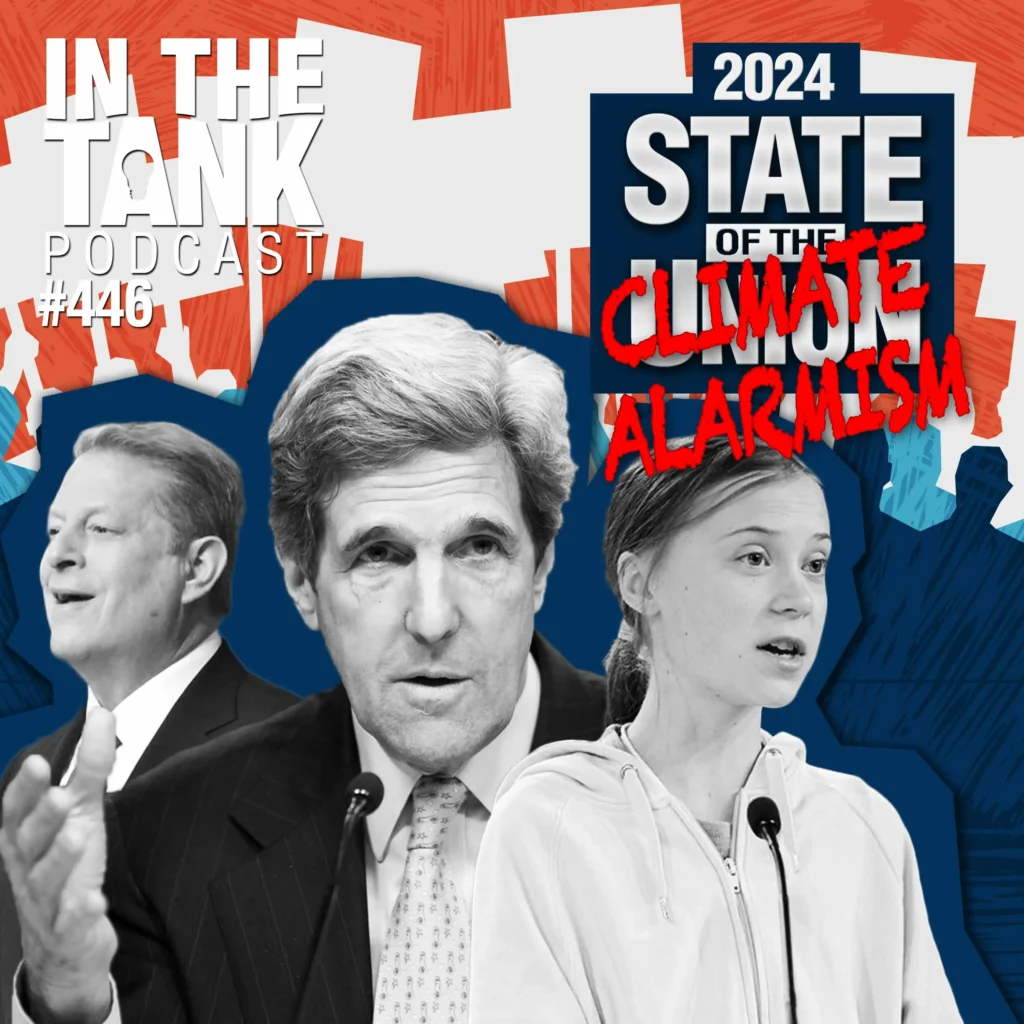The final version of the Fourth National Climate Assessment (NCA4), reflecting the work of the 13 different federal agencies that make up the U.S. Global Climate Change Research program (USGCCR), was released on Friday, November 23.
The 1990 Global Climate Research Act required the president to establish the USGCCR, charged with issuing a report describing the state of the climate and the economic, environmental, health, and safety consequences of climate change, every four years.
Predicting Extreme Harm
Upon NCA4’s release, USGCCR spokespersons stressed extreme estimates of harm included in the 1,600-page report.
“The impacts and costs of climate change are already being felt in the United States, and changes in the likelihood or severity of some recent extreme weather events can now be attributed with increasingly higher confidence to human-caused warming,” NCA4 says.
NCA4’s worst-case scenario assumes the world’s human population will grow to 12 billion by 2100, the rate of technological change will stagnate, economic growth will slow, and fossil fuel use will be 300 percent greater than today.
As a result, NCA4 estimates atmospheric carbon dioxide concentrations will reach 950 parts per million (ppm), up from 405 ppm at present, resulting in the global average temperature rising by 10 to 15 degrees Fahrenheit by 2100.
Among the myriad harms NCA4 claims will occur by 2100 based on these assumptions are U.S. GDP will be 10 percent lower than it otherwise would be; crop losses and damage from extreme weather will top $500 billion per year; and the United States will experience $141 billion in annual economic losses from thousands of premature deaths from heat, plus billions of dollars in losses from premature deaths and damage from extreme flood, wildfire, and weather events the study predicts will happen more regularly.
President Rejects Findings
When asked on November 26 his thoughts on NCA4, President Donald Trump was unperturbed, maintaining his previous skepticism about the dangers of anthropogenic climate change.
“I’ve seen it. I’ve read some of it,” said Trump. “I don’t believe it.”
This is a purely political report that Trump is right to reject, says Tim Huelskamp, Ph.D., president of The Heartland Institute, which publishes Environment & Climate News and produced its own detailed critique of a draft version of NCA4 in early 2018.
“This latest climate report is just more of the same—except for even greater exaggeration, worse science, and added interference in the political process by unelected, self-serving bureaucrats,” said Huelskamp. “This report from the climate alarmist Deep State in our government is even more hysterical than some United Nations reports.
“The idea global temperatures could rise as much as 12 degrees in the next 80 years is absurd, and not a shred of actual data and observation supports that,” Huelskamp said. “As noted in the Nongovernmental Panel on Climate Change’s report Climate Change Reconsidered, global temperatures have stayed largely the same for much of the last 20 years, and sea levels have not been rising at an accelerated rate. President Trump was required by law to release this report, but he is not required to take it seriously—and he surely will not.”
‘Blatantly Absurd Conclusions’
NCA4 is extremely inaccurate because it is based on flawed computer models, says Jay Lehr, Ph.D., science director at The Heartland Institute.
“I have never seen such blatantly absurd conclusions drawn entirely from mathematical models that use only a limited number of variables,” said Lehr. “The physical evidence conclusively shows the frequency and strength of hurricanes, floods, and wildfires has been declining for years, not increasing.
“Of course, this shoddy science by Obama-era appointees serves its real purpose: producing a preordained political outcome that puts more power and money in the hands of the United Nations,” Lehr said.
The government agencies involved in the report are putting politics above the pursuit of truth, says University of Delaware climatology professor David Legates, Ph.D.
“The Obama administration demanded the use of the extreme scenarios so the predicted impact on the populace would be substantial,” Legates said. “This isn’t about the science. If it were, there would be discussions about the other scenarios and about the uncertainties in the climate system and in the models that drive these scenarios.
“They have taken the worst possible scenarios and packaged them as if they were the expected norm,” said Legates. “Climate science has all but died in this country.”
‘Completely Unbelievable’
NCA4 was written to incite drastic action to fight climate change, says Tom Harris, executive director of the International Climate Science Coalition.
“The Fourth National Climate Assessment, released just over a week before the 24th Conference of the Parties to the United Nations Framework Convention on Climate Change, seems designed to provide ammunition to those who want drastic action on climate change,” Harris said. “The problem is NCA4’s conclusions are so extreme as to be completely unbelievable and easily dismissed by any thinking person.”
The cost estimates of the harm from future climate changes are built on assumptions about carbon dioxide emissions well outside mainstream analyses, says Patrick J. Michaels, Ph.D., director of the Center for the Study of Science at the Cato Institute.
“The ‘social cost’ of carbon dioxide emissions is highly dependent upon the assumptions made in its calculation,” said Michaels. “For example, using the historical 7 percent discount rate and more modest equilibrium climate sensitivities calculated by John Christy and Nic Lewis, the cost actually becomes negative, meaning there is a net benefit of a few dollars per emitted ton.
“By using lower discount rates and high emissions scenarios and sensitivities, holdovers from the Obama administration were able to calculate costs in excess of $50 per ton,” Michaels said.
H. Sterling Burnett, Ph.D. ([email protected]) is a senior fellow at The Heartland Institute.
INTERNET INFO
Jay Lehr et al., “A Critique of the U.S. Global Climate Change Research Program’s 2017 Climate Science Special Report,” The Heartland Institute, February 18, 2018: https://heartland.org/publications-resources/publications/a-critique-of-the-us-global-change-research-programs-2017-climate-science-special-report





